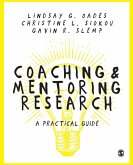
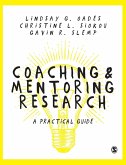
Gebundenes Buch
A Practical Guide
14. Juni 2019
SAGE Publications Ltd / Sage Publications
| eBook, ePUB | 34,95 € | |
| eBook, PDF | 34,95 € |
Ähnliche Artikel


Gebundenes Buch
18. Oktober 2017
Chiron Publications

Gebundenes Buch
2023
19. Juli 2023
Springer / Springer International Publishing / Springer, Berlin
978-3-031-33361-3
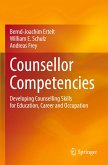
Broschiertes Buch
Developing Counselling Skills for Education, Career and Occupation
1st edition 2022
24. April 2023
Springer / Springer International Publishing / Springer, Berlin
978-3-030-87415-5
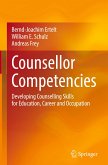
Gebundenes Buch
Developing Counselling Skills for Education, Career and Occupation
1st edition 2022
24. April 2022
Springer / Springer International Publishing / Springer, Berlin
978-3-030-87412-4

20,99 €
Versandfertig in 1-2 Wochen
Broschiertes Buch
Quick Tips for Busy Managers
SPE
20. Januar 2006
AMACOM / McGraw-Hill Professional
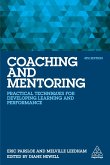
Broschiertes Buch
Practical Techniques for Developing Learning and Performance
4. Aufl.
29. März 2022
Kogan Page
12779

Broschiertes Buch
Worklife Interconnectedness, Energy, and Resilience in Organizations
1st ed. 2014
7. August 2014
Palgrave Macmillan / Palgrave Macmillan US / Springer Palgrave Macmillan
978-1-349-48122-4

22,99 €
Versandfertig in 1-2 Wochen
Gebundenes Buch
A business fable for teams and the people who lead them
10. Oktober 2023
Freiling Agency, LLC

Broschiertes Buch
An Exploratory Study Investigating the Perspective of the Social Agents: Organizations, Executives and External Coaches
2010
VDM Verlag Dr. Müller
Ähnlichkeitssuche: Fact®Finder von OMIKRON
